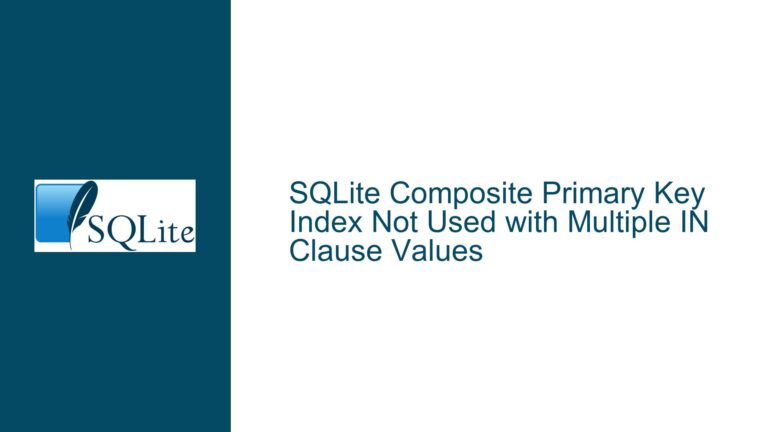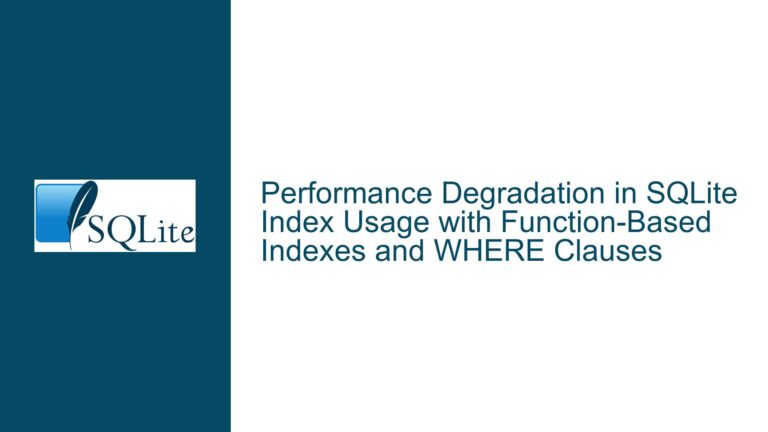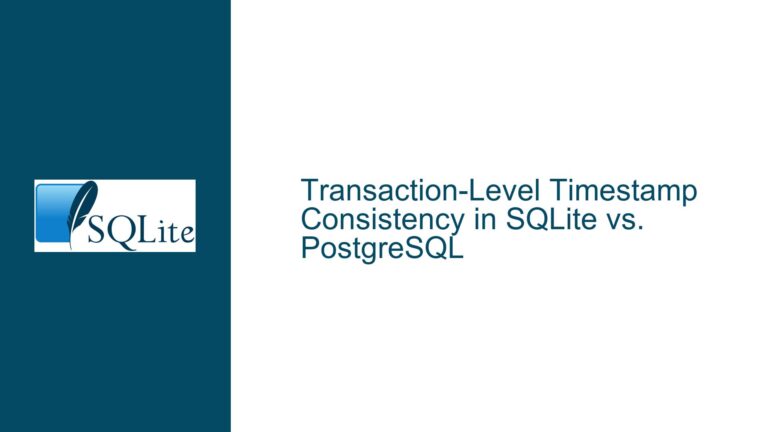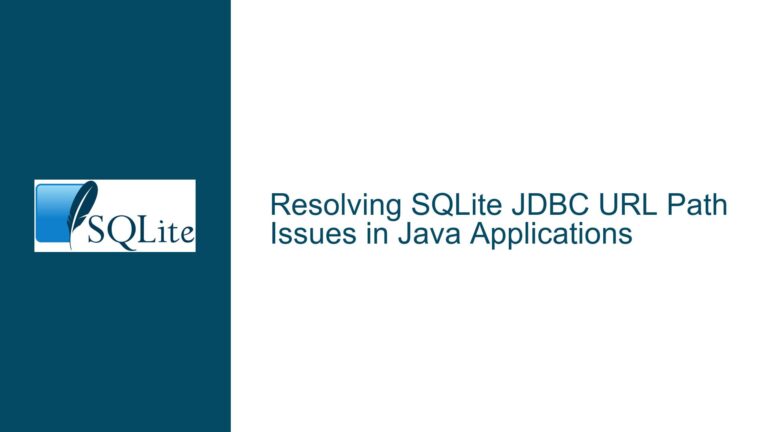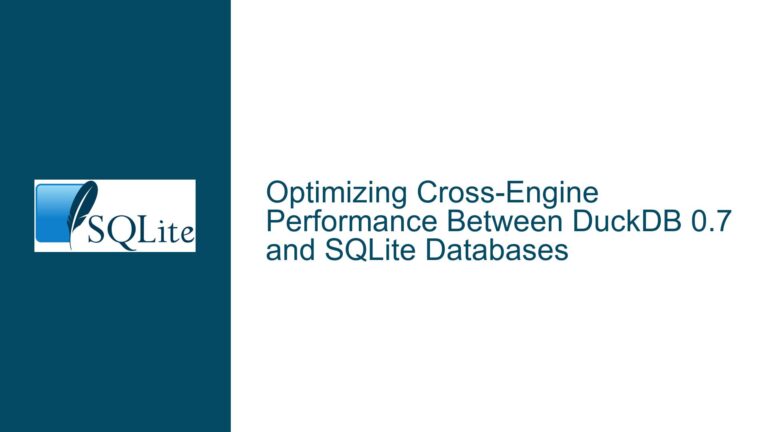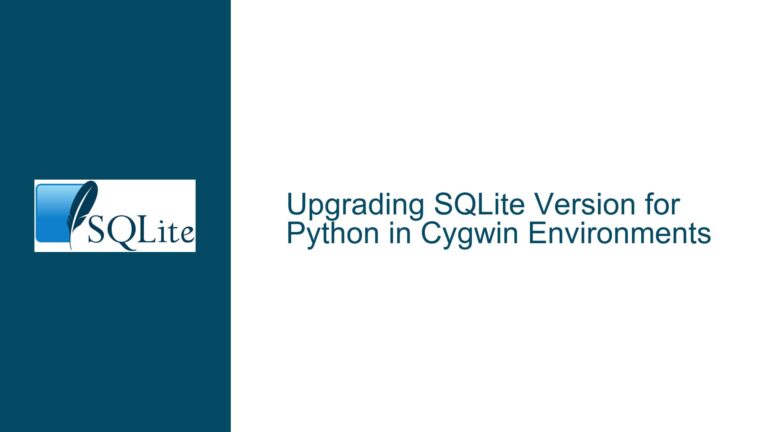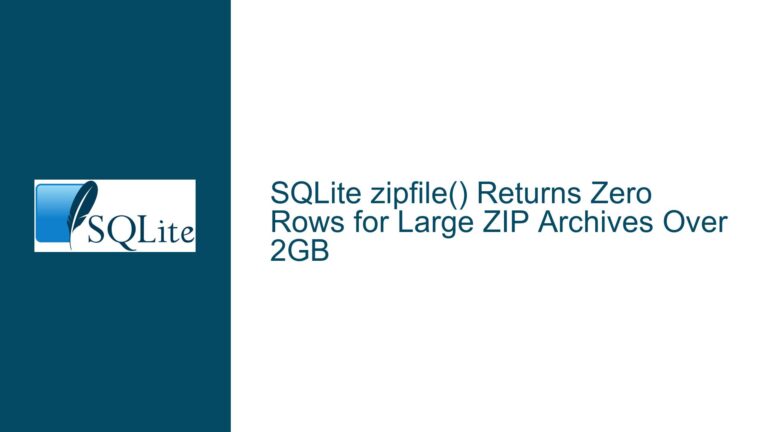SQLite Composite Primary Key Index Not Used with Multiple IN Clause Values
Understanding Why SQLite’s Query Planner Avoids Composite Index for Multi-Value IN Clauses Issue Overview: Composite Index Ignored During Multi-Tuple IN Clause Queries When querying a SQLite table with a composite primary key (e.g., (id, time)), developers expect the query planner to leverage the index for efficient lookups. However, in scenarios where an IN clause contains…
